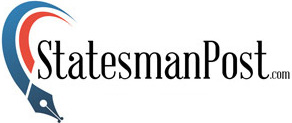
The Supreme Court has rendered a pivotal decision in the case concerning the use of federal obstruction laws against participants in the January 6 Capitol riot. The ruling, which directly impacts numerous defendants including former President Donald Trump, challenges the application of Title 18, Section 1512(c)(2) of the U.S. Code. This statute, initially designed to combat document fraud in the wake of the Enron scandal, criminalizes the obstruction of an official proceeding, a felony punishable by up to 20 years in prison.
At the heart of the debate was whether the actions of the January 6 protesters, accused of disrupting the certification of President Joe Biden’s election, constituted obstruction under this law. The case was brought by Joseph Fischer, a former police officer, who argued that the statute was being misapplied to suppress legitimate political protest.
🚨BREAKING: SCOTUS has overturned the DOJ's use of the Enron-era obstruction of an official proceeding in J6 cases, 1512(c)(2). The Court says 1512 was not used lawfully when prosecuting President Donald Trump and 350+ J6ers. A massive win for restoring true justice in this… pic.twitter.com/diwykTFwTK
— Charlie Kirk (@charliekirk11) June 28, 2024
The Supreme Court's decision hinged on the interpretation of what constitutes an "official proceeding" and whether actions that merely delay or complicate such proceedings should be treated with the same severity as those intended to corruptly influence the outcome. Justice Samuel Alito highlighted the potential overreach of the statute, questioning whether minor disruptions could lead to disproportionate felony charges, thereby infringing on First Amendment rights.
In their ruling, the justices expressed concern that the broad application of the law could have a chilling effect on political protests. Justice Amy Coney Barrett underscored this point, warning against the government’s expansive interpretation of the statute that might criminalize protected activities . The Court's decision reflects a cautious approach to balancing the enforcement of law with constitutional protections, setting a significant precedent for future cases involving political protests and civil disobedience.
The Fischer ruling from the Supreme Court today is a win for every J6 defendant, including President Trump, being wrongly prosecuted by Joe Biden’s weaponized Department of Justice!
The Supreme Court got this one right. pic.twitter.com/8NeCNKz4mA
— Rep. Marjorie Taylor Greene🇺🇸 (@RepMTG) June 28, 2024
As a result of this ruling, numerous January 6 defendants who were charged with obstruction may see their convictions overturned or their sentences reduced. Notably, this decision could affect high-profile figures like Jacob Chansley, known as the "QAnon Shaman," and potentially influence the charges against Trump, who faces related obstruction and conspiracy counts.
The ruling underscores a broader judicial skepticism about the selective prosecution of political protests. Justice Clarence Thomas pointed out that other violent protests have not faced similar legal scrutiny, suggesting a potential bias in the application of the law.
Legal analysts predict that this decision will lead to significant changes in how federal prosecutors handle cases of political protest. It is anticipated that prosecutors will need to rely more heavily on other charges, such as trespassing or disorderly conduct, which do not carry the same severe penalties as obstruction.
This landmark decision not only affects the immediate cases of the January 6 defendants but also sets a critical precedent for the limits of federal obstruction statutes in the context of political protests. The Supreme Court's ruling is a reaffirmation of the need to protect First Amendment rights while ensuring that laws designed to prevent corruption are not misused to suppress dissent.













Then the law suits begin, for unjust imprisonment.